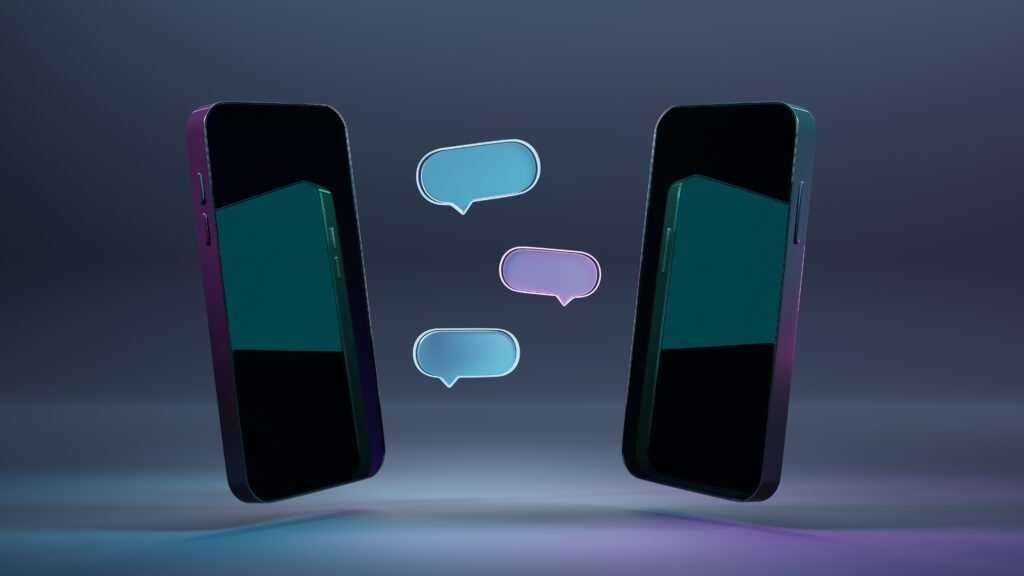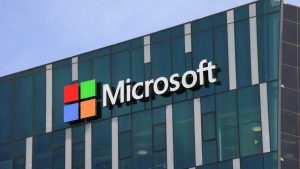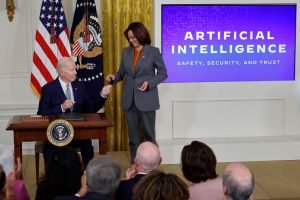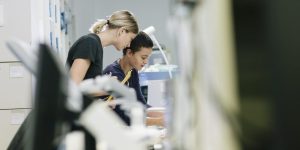CHICAGO — Public will also be mightily unenthusiastic to get a colonoscopy for causes like price, language obstacles, or concern of what the examination would possibly uncover. Probably the most highest counters to such obstacles are affected person navigators who can backup unravel maximum such causes. The difficulty is that there are most effective such a lot of navigators at a given most cancers heart. Scientists at Montefiore Einstein questioned if AI may backup.
Alyson Moadel-Robblee, a psychologist running on psycho-oncology at Montefiore Einstein Complete Most cancers Middle, stated the navigator crew there — as at many hospitals — merely can’t achieve all the just about 3,000 sufferers a time who don’t create their colorectal most cancers screening.
“Since the pandemic, the demand and load on our healthcare team is huge. They’re stretched thin. They can only do so much,” Moadel-Robblee stated. “They can’t call in the evening or whenever.”
So, Moadel-Robblee and alternative scientists at Montefiore Einstein partnered with the tech corporate MyndYou to form a conversational synthetic prudence to do the majority of the outreach for sufferers who no-showed or canceled colonoscopy screening appointments. In an summary introduced here on the assembly of the American Public of Scientific Oncology on Saturday, the crew reported the AI helped double the colonoscopy of entirety fee amongst this team.
The AI, dubbed MyEleanor, isn’t designed to exchange human navigators, Moadel-Robblee defined. “She” screams sufferers who didn’t demonstrate up or canceled their colonoscopy appointments. In the event that they pick out up, she has two number one directives: switch them over to a human navigator and, if the affected person has the same opinion, information them via a temporary survey on why they ignored their appointment.
“Our virtual navigator, she doesn’t sleep. So she can call earlier, later, or on different days. The navigators that are human are invaluable. They have the human touch. We can’t replace them, but we can supplement,” Moadel-Robblee stated.
In an presen the place computer systems appear to be galloping ever nearer to passing the Turing take a look at, the scientists made some very planned selections on MyEleanor’s sophistication. For one, she doesn’t pitch specifically human, Moadel-Robblee stated. “Our peer navigators, cancer survivors, said ‘I don’t want this bot to sound like a person and not know if they’re not real,’” she stated. So, MyEleanor keeps the pronunciation of a robotic. However, Moadel-Robblee insisted, with out sounding impersonal.
“She’s really warm,” Moadel-Robblee stated. “She says, ‘I’m Eleanor. I speak English and Spanish, which would you prefer? I’m part of the care team.”
It sort of feels to have labored with a excellent bite of sufferers. Of two,400 sufferers that MyEleanor known as, 57% stayed at the form with the bot. Amongst the ones, over part affirmative to switch to a human navigator to effort to reschedule their appointment. In the long run, human navigators had been ready to extend the percentage of no-show sufferers who finished their colonoscopy from 10% to 19% with MyEleanor’s aid. Now not most effective that, however MyEleanor helped distant up a mean of 52 paintings hours in step with date for every human navigator.
“This quality improvement initiative is truly an innovative means of increasing cancer screening,” stated Fumiko Chino, a radiation oncologist at Memorial Sloan Kettering Most cancers Middle throughout a web-based ASCO press briefing. She didn’t paintings at the learn about. “It really offloads the burden from an overworked healthcare workforce by leveraging AI technology to optimize the outreach capacity to vulnerable populations.”
Those are specifically excellent numbers making an allowance for an important share of the Bronx is underserved and would possibly face a couple of obstacles to gaining access to assist. Within the learn about, Moadel-Robblee stated, a couple of quarter of sufferers are basically Spanish audio system, about 40% are Unlit, 32% are unemployed, and about 40% have schooling past highschool. Unlit and Latino sufferers are each much more likely to be recognized with colorectal most cancers at more youthful ages and much more likely to be recognized at extra complicated levels, Chino stated, when cancers are more difficult to fix.
“It’s a group that we’re always trying to reach,” stated Cynthia Mojica, a most cancers researcher at Oregon Condition College who didn’t paintings at the learn about. In that sense, the learn about demonstrated how AI may well be a device that would reinforce engagement with prone communities for most cancers prevention — and most likely backup akin one of the fitness disparities between low-income communities and communities of colour.
“It has a lot of potential. There are a lot of advantages to it,” stated Mojica, who could also be running on a alike venture to virtue AI for affected person outreach and navigation. “The idea is to decrease disparities using AI, but I think we also need to be careful about how we’re designing it.”
There are some things that mavens like Mojica and Chino hope to look upcoming. For one, Mojica stated, there’s a anticipation that some populations is also extra relaxed enticing with AI than others, so it’ll be impressive to seek out tactics to create positive AI doesn’t form equipment which can be biased in opposition to serving to most effective extra privileged teams.
“It’s important to note this is a quality improvement project, not a randomized controlled trial,” Chino additionally identified. “The benefits really need to be continually reevaluated over time and rigorously tested in other populations.”
However assuming the advantages are actual, the era has a batch of doable, Chino stated. And now not only for colorectal most cancers screening methods, stated Montefiore Einstein’s Moadel-Robblee. Quickly, they hope to roll out MyEleanor to alternative most cancers prevention methods, together with lung and breast most cancers.




